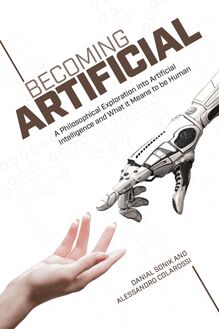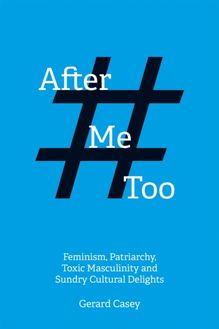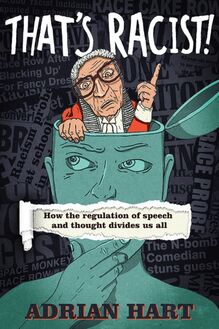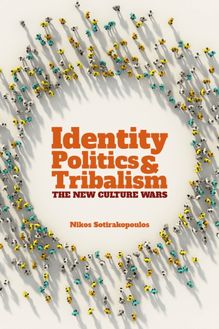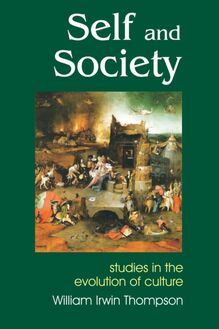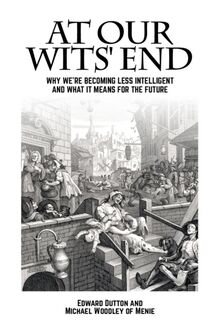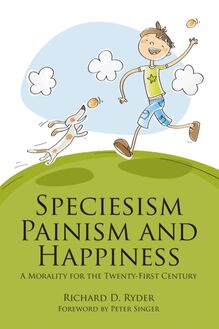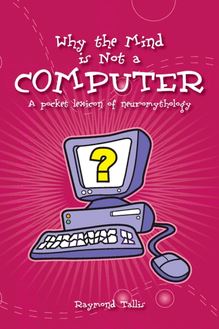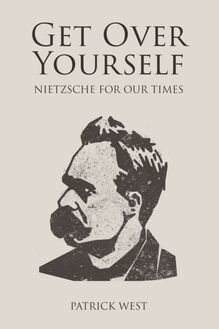Capitalism and Human Values , livre ebook
144
pages
English
Ebooks
2015
Vous pourrez modifier la taille du texte de cet ouvrage
Obtenez un accès à la bibliothèque pour le consulter en ligne En savoir plus
Découvre YouScribe en t'inscrivant gratuitement
Découvre YouScribe en t'inscrivant gratuitement
144
pages
English
Ebooks
2015
Vous pourrez modifier la taille du texte de cet ouvrage
Obtenez un accès à la bibliothèque pour le consulter en ligne En savoir plus
Publié par
Date de parution
15 juillet 2015
Nombre de lectures
2
EAN13
9781845408350
Langue
English
Publié par
Date de parution
15 juillet 2015
Nombre de lectures
2
EAN13
9781845408350
Langue
English
Title page
Capitalism and Human Values
Tony Wilkinson
SOCIETAS
essays in political
& cultural criticism
imprint-academic.com
Publisher information
2015 digital version by Andrews UK Limited
www.andrewsuk.com
Copyright © Tony Wilkinson, 2015
The moral rights of the author have been asserted.
No part of this publication may be reproduced in any form without permission, except for the quotation of brief passages in criticism and discussion.
Originally published in the UK by
Imprint Academic, PO Box 200, Exeter EX5 5YX, UK
Originally distributed in the USA by
Ingram Book Company, One Ingram Blvd., La Vergne, TN 37086, USA
Dedication
For Emma
Introduction
Introduction
Capitalism is not enough
Whether we like it or not, material and economic concerns suffuse and dominate modern culture. Not only is public policy largely dictated by economics but overwhelmingly our individual economic role and status define our place in society and our relationships to other people. Getting and spending have come to define who we are.
Then, in the grip of this materialist obsession, the world in general has narrowed its gaze to capitalism as the one dominant form of economic organization. Today, private enterprise is embraced or at least allowed in almost every part of the world, even where political organization is overtly undemocratic. But let us be clear: in itself this is not something to lament, for capitalism has brought us such prosperity as we enjoy. It and its engine, free enterprise, provide innovation, efficiency and abundance like no other form of economic organization yet devised.
Yet we know that capitalism also has a dark side of excesses and abuses - excessive inequality, for example, exploitation, instability and even violence in the pursuit of profit - which governments have often sought to mitigate or control but with limited success. There have been and remain many who believe that such problems reveal something fundamentally wrong with the world’s dominant form of economic organization and that therefore we need a radically different system.
But with what could we replace capitalism when other systems have been tried and have failed even more spectacularly? Revolution, the wholesale destruction of institutions in the hope that something better will emerge, may appeal to those who think they have nothing to lose or may even sound romantic. The reality usually involves violence and misery on a massive scale followed by a return to something remarkably like the way things were.
On the other hand, proposed solutions to reform or tame capitalism rather than replace it obviously need repeated legislative or institutional adjustments. But this political process is often a losing battle in which the balance of power is against politics. Without doubt some such political innovations have a part to play but, crucially, no such solution has worked so far. We continue to gain considerable benefits from capitalism, yes, but also still suffer the excesses, abuses and failures.
The key contention of this book is that what is wrong with capitalist society is not primarily the way economic activity is organized. It is that capitalism and free enterprise do their limited job so well that we have mistaken what they do for the purpose of our lives and society. Reining in the excesses and abuses of capitalism may well involve economic or institutional reform of some sort but the root of the problem lies deeper. This is a problem about our values.
The fragmentation and in many cases decline of other - particularly religious - beliefs has left a vacuum where shared values might once have been. Of course history is full of examples where economic advantage crushed human or religious decency anyway, but values only stood a chance when they were strongly held and widely shared. We have now come by default to believe that our collective and private lives should be so defined by our economic lives that we scarcely have values any longer, just economic aims. It is as if we created a machine so glittering and powerful that we came to worship it, forgetting that economic output and consumption are only part of what we are or could be. Capitalism, like many of its products, is a good servant but a bad master.
If, however, we had strong, shared values they could provide a counterweight to capitalism and its implied materialism, pointing up the tendencies which otherwise result in abuses and leading us to insist, collectively, on something better. A society in which values were strong enough to hold an equilibrium with the power of capital could work wonders. Our contention is that capitalism fails when we forget that it does not make sense for it to stand alone. We need values of some kind to stand beside it, shared values which give us direction and provide boundaries to the power enterprise can unleash.
But as things stand we simply do not have such values - not, at least, on a basis we can agree upon and share. Any form of “ethical capitalism” must remain a fantasy as long as we cannot agree what our values are and why. The way we live and the fate of our society are both tied up with our ability to rediscover or reconstruct our values.
Values
So we must look hard at values. Most of us have a sense that there must be some sort of standards to help us shape our lives and actions. There are, for example, important lines we just won’t cross in our personal lives. However, when we try to pin down this sense or the detail of whatever picture such lines make, we begin to struggle. To change the image, values can seem like mirages that retreat as we approach.
It can also seem that other people see quite a different picture. We live in a world of many cultures and beliefs, in which there are many different ideas of what values are and which values should guide us. But such variety seems to make any particular values optional, or perhaps only valid relative to certain circumstances, cultures or traditions. If we are not careful values dissolve altogether and we are left living without guidance or direction, amid others who play by different rules or none.
Getting clear about our values is surely then something of great importance even without considering how to tame capitalism. Values help us make major choices, of course, but they also influence the day-to-day fabric of our lives, the small choices which make us who we are. They define our characters and are critical in how we relate to others. Political or collective values, we might hope, help us make (or contribute to) the kind of collective choices which determine what kind of society and indeed world we live in. In so doing they bind people together into communities, nations, or congregations. In fact, communities really only work if there are shared values and if we don’t have them it is difficult to live together without conflict.
But what kind of things are these values? Where do they come from? What gives them their authority? How do we decide or find out what ours are or should be, or why we have the values we may have? Immediately we find ourselves in difficulty. There are too many conflicting answers from which to choose.
The foundation of values
It is tempting to conclude from such confusion that values are somehow an outmoded idea or belong to some realm of wishful thinking. But the source of the confusion is easily identifiable. There is little point in arguing about whether this or that action is right or wrong (for example) when we don’t agree about what criteria should be applied to decide the question, or even about what the question basically means. We don’t agree what makes a value a value and hence there is no bedrock on which we can build the structures that make up our lives. We no longer agree what the foundation of values might be. [1]
A common stance we have already met, for example, is that life and society are all about economics, possessions and consumption so that values, political as well as personal, are primarily about our attitudes to such things. But this does not take us very far, for some believe that those who can should maximize their share, others believe in material equality, others in finding some balance between reward and need, for example. Or perhaps values are after all just a sham, part of a story people are told to keep them obediently in their allotted economic place. But which of these versions should we believe? And why?
Another common stance is that values are just a matter of personal taste or private conviction. On this view, I have my values and you have yours and, while we may try to explain them to each other, if we don’t agree there is nothing much more to be said.
At another extreme there are many, including some of those for whom religion is an important aspect of their lives, who think of values as something eternally fixed and applicable to everyone, perhaps even regarding values as supernatural laws.
None of these stories can convince adherents of the others and none of them commands general agreement. Overall we have no shared or common idea about what values are or even what we are talking about when we try to discuss them. Instead we rely on various, mostly confused, strands of history, religion, tradition, culture, feeling and whatever else. As a result, values cannot even be rationally discussed because we are quickly at cross purposes. They are especially difficult to apply in agreed ways to new situations, which severely restricts their usefulness. Whether one person can accept another’s values depends on both accepting the same starting point, which in our radically pluralist, multicultural, multi-religious world is increasingly unlikely. Often, we just end up shouting.

